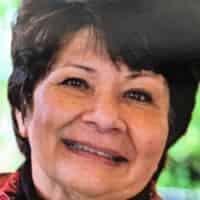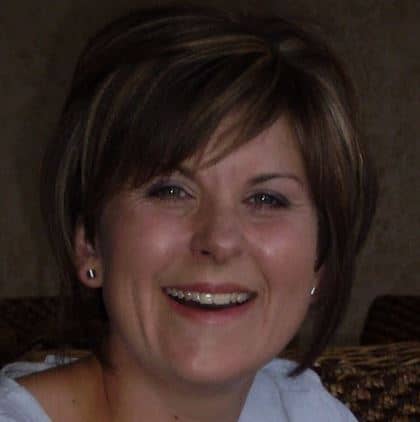

I am Rossario Cuzzubbo, the youngest of four children born to Alfio and Giovanna Cuzzubbo. On behalf of my brother and sisters I tell this story of our parents.
Alfio Cuzzubbo (Dad) was born in Riposto, Sicily, Italy in 1903. After WW1, there was little work available and things were tough so he decided to immigrate to Australia. In 1922 he boarded a German boat with his cousin in Naples, Italy. They arrived in Brisbane on dad’s 19th birthday.
Dad settled in Mirriwinni where his sister and brother-in-law were living. He worked cutting cane for several years until his asthma and bronchitis made working difficult. His doctor advised him to move to a drier climate such as Charters Towers or Mareeba. In the late 1920’s the Queensland Government was starting a tobacco industry in Mareeba and dad heard they would be auctioning land. He decided to go to Mareeba. To be eligible to purchase land he had to be an Australian citizen and on 14 March 1928 he was naturalised.
Dad bought a block of land at Parada, near Mutchilba. The land had to be cleared and he did this while travelling to the coast to cut cane to earn money. From the beginning dad had put aside money to send to Sicily to support his parents. He continued to do this until the 1950’s while establishing his new farm. In 1932 he grew his first crop of tobacco.
In 1937 a marriage was arranged for him. Dad married my mother, Giovanna (mum), by proxy in Riposta, Sicily. They had never seen one another. As a married woman my mother boarded the Esqillino in Genova on 25 May 1937. They finally met when she dis-embarked on the wharf in Brisbane. From there they took the train north to Babinda where dad’s sister lived, then travelling to Parada.
Dad had built two curing barns and a bulk shed to store tobacco. To welcome his new wife, he had attached a kitchen and two bedrooms. Despite this effort, mum was shocked when she saw how primitive things were. Although her family were poor, mum was a city girl. Here, ordinary tasks such as washing involved a walk to the creek. She did this until dad found water and dug a well. Finding the water was a boon for the family. As well as making domestic duties a little easier, it meant he could irrigate crops and he grew an acre of tomatoes for sale in the southern markets. In the wet season he was able to grow corn, pumpkins and tobacco.
Bulldozer hire was too expensive in the 1940’s so dad cleared with a tree puller (an arrangement of thick chains and a winch used to pull over the tree) and dynamite and then cultivated with a plough drawn by 3 draft horses. In 1945 he was able to buy a Bedford truck to take vegies to the railway siding and in 1950 could finally buy a tractor to replace the horses.
In 1946 dad bought a second block of land adjacent to his original farm. This worked well until in the late 1950’s farm boundaries were re-surveyed in preparation for opening up more land for irrigation. A law was passed prescribed personal ownership was limited to one property only. Fortunately, dad took the advice of an Englishman, an Irrigation and Water Supply Department employee, who suggested he transfer the second farm to mum. Many farmers discovered the changed legislation only after the Department removed their second property at a low valuation.
Dad grew his first crop of irrigated tobacco in the 1956-1957 season with water from Collins Weir. The next season water came from the Tinaroo Dam ensuring predictable water supply. In 1965 the introduction of the tobacco stabilisation scheme which regulated the amount of tobacco able to be sold, made tobacco a viable crop and went a long way to improving the living standard of tobacco farmers.
My parents raised 4 children on their farm: Maria (born in 1939); Rosa (1941); Vito (1944 and Rossario (1945). When they retired in 1969 to a home in Mareeba they left us 2 farms.
In Mareeba mum and dad celebrated their golden wedding anniversary in 1987. Six years later in, just before his 90th birthday dad passed away. Mum survived him by 4 years, dying at 86 in 1997. In spite of the hardships they endured from impoverished beginnings they lived long and useful lives as pioneers in the Mareeba community.
After leaving Sicily in 1922, dad never saw his parents again. As Italy was allied with Germany in World War 11, contact with his family was lost and he did not know until many years after that his mother had died during the war. He never wanted to return to Sicily although he did visit in 1970 but only to please mum. Dad never really spoke about how he felt. Mum was very happy to have visited Sicily again. She also returned to Italy in 1960 with her daughter Maria and was able to see her frail father before his passing. She came back re-invigorated and excited but very happy to be back home with her children and grandchildren.


Angela was born in Mareeba but like most young people left to pursue a career in Corrections and then Community Services. On retirement, she returned to her home town and is happy to be contributing to progression and preservation.

Since the age of 20, Al has been part of the radio industry working at stations 4VL, 4CD, 4RO, 2ST, 2LT, 3BO, 4ZR, 4VL (again) 4KZ, KOOL FM, 4AY, KIK FM & 4AM.

We are a local app design company located right here on the Atherton Tablelands. Drop us a quick email and we will help you analyse what a new or improved app might mean to your business.

Janet commenced work with the Mareeba Heritage Centre in July 2016. She had the vision to create this project and was instrumental in acquiring funds and putting the right people in place to bring this project together. Janet is passionate about community engagement and development.
© Mareeba Heritage Museum and Visitor Information Centre 2026